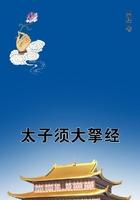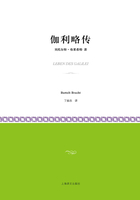FINNISH AND TARTAR VILLAGES
A Finnish Tribe--Finnish Villages--Various Stages of Russification--
Finnish Women--Finnish Religions--Method of "Laying" Ghosts--
Curious Mixture of Christianity and Paganism--Conversion of the Finns--A Tartar Village--A Russian Peasant's Conception of Mahometanism--A Mahometan's View of Christianity--Propaganda--The Russian Colonist--Migrations of Peoples During the Dark Ages.
When talking one day with a landed proprietor who lived near Ivanofka, I accidentally discovered that in a district at some distance to the northeast there were certain villages the inhabitants of which did not understand Russian, and habitually used a peculiar language of their own. With an illogical hastiness worthy of a genuine ethnologist, I at once assumed that these must be the remnants of some aboriginal race.
"Des aborigenes!" I exclaimed, unable to recall the Russian equivalent for the term, and knowing that my friend understood French. "Doubtless the remains of some ancient race who formerly held the country, and are now rapidly disappearing. Have you any Aborigines Protection Society in this part of the world?"
My friend had evidently great difficulty in imagining what an Aborigines Protection Society could be, and promptly assured me that there was nothing of the kind in Russia. On being told that such a society might render valuable services by protecting the weaker against the stronger race, and collecting important materials for the new science of Social Embryology, he looked thoroughly mystified. As to the new science, he had never heard of it, and as to protection, he thought that the inhabitants of the villages in question were quite capable of protecting themselves.
"I could invent," he added, with a malicious smile, "a society for the protection of ALL peasants, but I am quite sure that the authorities would not allow me to carry out my idea."
My ethnological curiosity was thoroughly aroused, and I endeavoured to awaken a similar feeling in my friend by hinting that we had at hand a promising field for discoveries which might immortalise the fortunate explorers; but my efforts were in vain. The old gentleman was a portly, indolent man, of phlegmatic temperament, who thought more of comfort than of immortality in the terrestrial sense of the term. To my proposal that we should start at once on an exploring expedition, he replied calmly that the distance was considerable, that the roads were muddy, and that there was nothing to be learned. The villages in question were very like other villages, and their inhabitants lived, to all intents and purposes, in the same way as their Russian neighbours. If they had any secret peculiarities they would certainly not divulge them to a stranger, for they were notoriously silent, gloomy, morose, and uncommunicative. Everything that was known about them, my friend assured me, might be communicated in a few words. They belonged to a Finnish tribe called Korelli, and had been transported to their present settlements in comparatively recent times. In answer to my questions as to how, when, and by whom they had been transported thither my informant replied that it had been the work of Ivan the Terrible.
Though I knew at that time little of Russian history, I suspected that the last assertion was invented on the spur of the moment, in order to satisfy my troublesome curiosity, and accordingly I
determined not to accept it without verification. The result showed how careful the traveller should be in accepting the testimony of "intelligent, well-informed natives." On further investigation I discovered, not only that the story about Ivan the Terrible was a pure invention--whether of my friend or of the popular imagination, which always uses heroic names as pegs on which to hang traditions, I know not--but also that my first theory was correct. These Finnish peasants turned out to be a remnant of the aborigines, or at least of the oldest known inhabitants of the district. Men of the same race, but bearing different tribal names, such as Finns, Korelli, Tcheremiss, Tchuvash, Mordva, Votyaks, Permyaks, Zyryanye, Voguls, are to be found in considerable numbers all over the northern provinces, from the Gulf of Bothnia to Western Siberia, as well as in the provinces bordering the Middle Volga as far south as Penza, Simbirsk, and Tamboff. The Russian peasants, who now compose the great mass of the population, are the intruders.
The semi-official "Statesman's Handbook for Russia," published in 1896, enumerates fourteen different tribes, with an aggregate of about 4,650,000 souls, but these numbers must not be regarded as having any pretensions to accuracy. The best authorities differ widely in their estimates.
I had long taken a deep interest in what learned Germans call the Volkerwanderung--that is to say, the migrations of peoples during the gradual dissolution of the Roman Empire, and it had often occurred to me that the most approved authorities, who had expended an infinite amount of learning on the subject, had not always taken the trouble to investigate the nature of the process. It is not enough to know that a race or tribe extended its dominions or changed its geographical position. We ought at the same time to inquire whether it expelled, exterminated, or absorbed the former inhabitants, and how the expulsion, extermination, or absorption was effected. Now of these three processes, absorption may have been more frequent than is commonly supposed, and it seemed to me that in Northern Russia this process might be conveniently studied.















